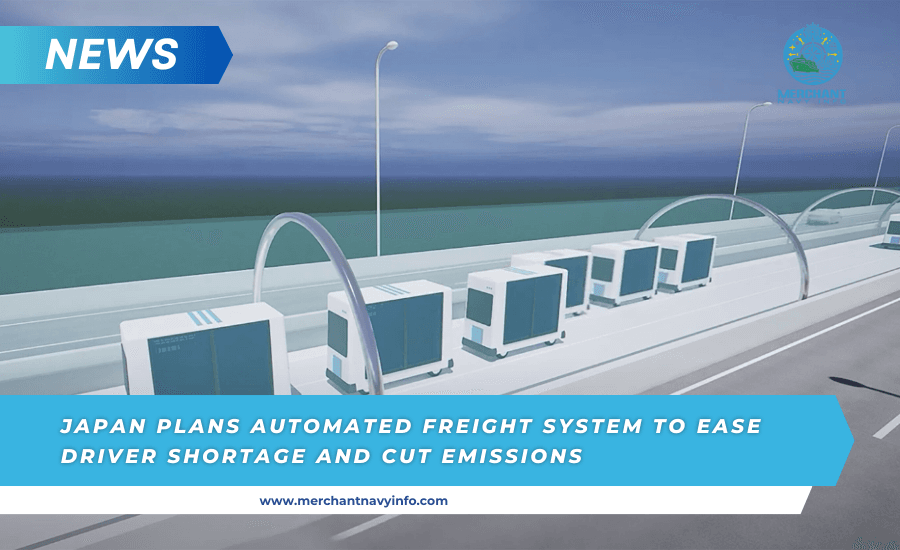
Japan Plans Automated Freight System To Ease Driver Shortage And Cut Emissions
Japan plans to build an automated freight corridor between Tokyo and Osaka, which the government calls the “transport belt,” to make up for a shortage of truck drivers.
The amount of funding for the project has not yet been determined, but it is seen as one key way to help the country cope with growing deliveries.
A government-produced computer graphics video shows large wheeled boxes moving along a three-lane corridor, also known as the “automatic flow road,” in the middle of a large highway. The pilot system is scheduled to begin trial operations in 2027 or early 2028 and be fully operational by the mid-2030s.
“We need innovation in the way we handle roads,” said Yuri Endo, senior deputy director of the Ministry of Land, Infrastructure, Transport and Tourism.
She said the system would also help reduce carbon emissions and make up for a shrinking workforce and the need to reduce driver workloads.
“The main concept of the automated flow route is to create a dedicated logistics space within the road network using a 24-hour automated and unmanned transport system,” Endo said.
The plan seems like a solution that would only work in a society with relatively low crime rates and a large population, such as Japan, and not in a country as large as the United States. However, Switzerland and the United Kingdom are considering similar ideas. The Swiss plan includes an underground track, while the London plan would be a fully automated system driven by low-cost linear motors.
In Japan, forklift loading would be automated and coordinated with airports, railways, and ports.
The boxes are 180 centimeters high, or nearly 6 feet, and 110 centimeters wide and long, or 3.6 feet by 110 centimeters, about the size of a large wardrobe.
The system is also being used for commercial deliveries and, if all goes well, could be expanded to other methods. Although driverless technology may be used in the future, human drivers may still be needed to make last-mile deliveries to people’s doorsteps.
Laws that took effect earlier this year limit how much overtime drivers can log, exacerbating Japan’s truck driver shortage. This is considered necessary to avoid overwork and accidents and make work bearable, but in Japanese logistics, government, and transportation circles, it is called the “2024 problem.”
According to government estimates, Japan’s total transportation capacity will fall by 34% by 2030 under current conditions. Domestic transportation capacity is about 4.3 billion tons, and according to the Japan Trucking Association, more than 91% of it is transported by truck.
This is just a small part of what is happening in a country as large as the United States. The United States transports about 5.2 trillion ton-miles of freight each year, and it is expected to reach more than 8 trillion ton-miles by 2050. Ton-miles measure the amount of freight transported and the distance it is moved, and it is a standard unit of one ton transported per mile.
During the epidemic, although the total population continued to decline as the birth rate fell, the demand for online shopping delivery soared, and the user ratio of Japanese households jumped from about 40% to more than 60%, according to government data.
As is the case in most places, truck drivers have a difficult job that requires them to be on the road for days at a time, and most job seekers find it unattractive.
In recent years, the death toll from road transport truck accidents has hovered around 1,000 per year. That’s an improvement from about 2,000 deaths in 2010, but the Trucking Association, which consists of about 400 trucking companies and organizations across the country, wants to improve delivery safety.
The association also urged consumers not to order delivery services or at least not to pick them up. Some industry experts have urged companies to limit free delivery services.
About 90% of Japan’s freight is carried by trucks, and about 60% of the country’s fresh produce, such as fruits and vegetables, comes from faraway places that need to be transported, said Yuji Yano, a professor at Ryotsu Keizai University. Express delivery giant Nippon Express, now known as NX Holdings, focuses on economic and liberal arts research, including freight issues.









